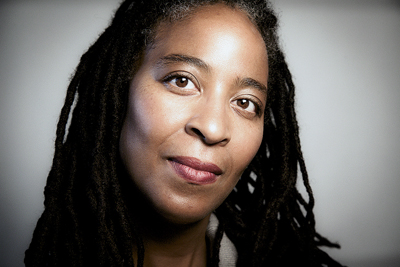Letters
Feedback from readers
I cannot think of a more compelling or lucid expression of the struggle to remain connected to our writing lives than the essay “Say Yes to Yourself: A Poet’s Guide to Living and Writing” (May/June 2019) by Camille T. Dungy. Not only was her message to fellow writers insightful, inspiring, and in all ways affirming, but the virtuosity of her prose had me gasping, as I followed her personal chronicle of actually drafting the essay that we all ended up reading. Her cautionary notes about surfing the web or answering e-mails hit close to home. I am now committing to my twenty minutes each day to put something (anything) down, with my best effort, before all else. Thank you.
Mark Russell Gelade
San Francisco, California
Camille T. Dungy’s “Say Yes to Yourself” provided me with a key to breaking open my time crunch. Instead of spending half an hour after breakfast reading the newspaper, I work on one of my many poems in process. So I don’t know what the weather forecast is? Can’t tell who won the Mariners game last night? So what? Many thanks for the new way to think about time.
Trina Gaynon
Portland, Oregon
Thank you for Camille T. Dungy’s “Say Yes to Yourself.” Brilliantly entertaining and useful. I don’t think any piece in Poets & Writers Magazine has ever resonated with me as strongly as this one.
Michael TenBrink
San Francisco, California
There I was, late at night, feet up on the ottoman, reading Camille T. Dungy’s “Say Yes to Yourself,” enjoying it, laughing out loud, admiring her writing, envying it even. And in the back of my mind, a little voice kept saying, “Wait for it, wait for it.” And boom! There it was: her thinly veiled reference to despondency after the last election. Now I am in no way suggesting she shouldn’t write her truth. That’s what writers do: share their truth. The question is, did it serve the essay? For me, the answer was no because it distracted me from the rollicking romp of encouragement to writers, which was, I believe, her intent—an encouragement that was definitely working for me. All I’m saying is that when I’m reading an otherwise terrific piece, it is a disservice to distract me in the middle of it. Writing can be political, of course; but writing about writing doesn’t need to be, unless that’s what you’re going for. Which would be fine. Except when it isn’t.
Pama L. Bennett
Sioux City, Iowa
Following the excellent, albeit a bit idealistic, “A Look Inside the System of Competition: What Really Happens After You Hit Submit” (May/June 2019) by Joey Franklin, you present six winners of literary contests (“Winners on Winning”). I look at their faces, and it appears there is not an author over forty in the bunch. It looks like a youth contest. Does it mean that the doors are closed to authors with more experience and a more mature voice? In other words, is there age discrimination? If so, Joey Franklin would have to rethink his article and investigate literary contests further.
Marie-Jo Fortis
St. Petersburg, Florida







